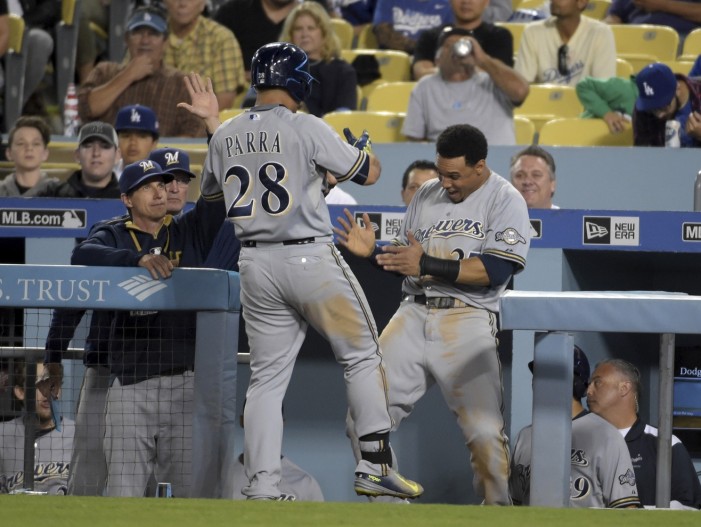Baseball is so fascinatingly complicated. For a long time, this was not believed to be true. Baseball was believed to be a rather simple, or at least a simpler, game. For a long time, people believed that the win-loss record was a good way of determining a pitcher’s talent. Those people also believed in saves, intentional walks, and other suboptimal ways of looking at the game. That is, until the “sabermetric movement” came along and made folks realize that those were insufficient ways of analyzing the game of baseball.
In “the Dark Ages,” as Brian Kenny likes to put it, chemistry was a term often used. It was part of the common baseball vernacular. The idea was that chemistry played an integral part in determining the success of a team. The term was often attributed to factors that could not be explained. For example, if a team didn’t have a lot of “good players” and yet made the playoffs, then one often saw the chemistry label being plastered on that team. The idea was that team won because they worked harder for each other and benefitted from other intangibles. When in reality, it was largely just a way of disguising the fact that those pundits were wrong about their expectations or that they had flaws in their original analysis.
When the sabermetric movement initially came along, the term was — as Bill James has noted — ridiculed. Chemistry wasn’t something that was quantifiable, “where is this chemistry we would demand to know? Where is the evidence for it?” But as Bill James later pointed out, that argument is a result of faulty reasoning. Chemistry posits that merely having positive interactions between co-workers can make one perform better. Having good chemistry makes the working environment more enjoyable. One where ideas and thoughts are allowed to flow through the workplace. Just take an example out of your own life. Will you not perform better if you’re working on a project with a bunch of devoted and mature people? The answer to that is highly dependent on other factors, but it would intuitively make sense that, yes, you would. It passes the smell test.
Many in the modern media still seem to believe that sabermetricians still fear the term chemistry. That it’s a term which sabermetrics does not recognize as valid, which was noted in a Bob Nightengale article. This, however, isn’t true.
The sabermetric community has evolved in its thinking on chemistry. Sabermetrics, as I’ve mentioned before, is not static, and many in the community now believe that there is value to having team chemistry. The next question is determining how much value chemistry truly has on a team. To this point, there hasn’t been a study that has accurately quantified the term. Although, that is not for a lack of trying. The problem is that it’s a difficult element of the game to quantify, but that doesn’t mean it isn’t real or that it can’t be done.
The problem with the term, however, still lies in its use. When most can’t explain something that happened on the field, they will attribute that to chemistry or they will make random assertions about the term — such as suggesting that one can’t bring a bunch of players together and expect it to work out. This case was often made last year concerning the San Diego Padres. They brought in a lot of players and those players didn’t perform. Therefore, some have attributed that to poor team chemistry. But, if the Padres did perform and made it to the playoffs, then that term probably wouldn’t have come up. There is a selection bias here.
This sort of label will almost certainly be made about the Brewers at some point this season. The term is most often used on losing teams and teams who underperform expectations. And, not just any expectations, it is often one’s own self-conceived expectations. It’s simply easier that way. If a team is struggling and losing, then they must have poor team chemistry.
Not all teams who are successful have good team chemistry, however, and not all teams who are bad have bad team chemistry. These are common misnomers.
The Brewers are going to be a bad team because they simply do not have a lot of talent on the team. They will not lose because the team has bad team chemistry.
The next few years will be trying for the Brewers. Not just for the fans, but for the players and organization as a whole. Nobody likes losing. It’s simply not why the game is played. And professional athletes are usually highly competitive people who particularly hate losing. This is rather obvious, but what the Brewers can do is create a very welcoming environment in the clubhouse. One where the players feel as though they are wanted and respected.
It won’t make a huge difference in losing and winning games. It won’t bring the Brewers into playoff contention, but it will create an environment for the young and the core players to thrive in the future.
